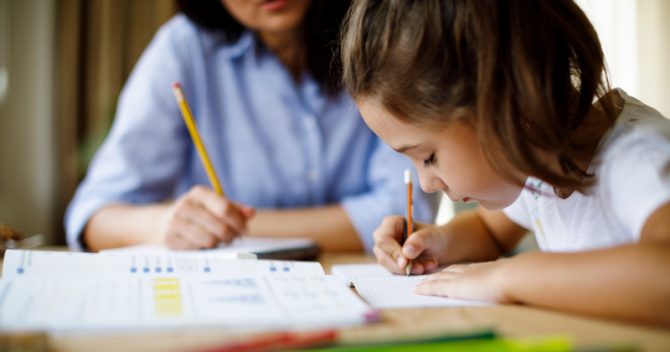Over-centralisation has been “revealed to be a weakness” of the education system during the Covid-19 pandemic, the government’s recovery commissioner has said.
Sir Kevan Collins told headteachers today that local solutions are needed to solve problems in education, and that schools should be trusted to spend recovery funding on initiatives that will best suit their pupils.
Over-centralisation I think has been revealed to be a weakness of the system
Collins, a former chief executive of the Education Endowment Foundation and London Borough of Tower Hamlets, was tasked with leading the government’s education recovery drive earlier this year.
He told the annual conference of school leaders’ union ASCL today that he believed in “localism” and “place”.
“If it comes to lunches for children, actually let’s do that locally. That’s how that is solved. If we want to put summer activities on for young people, let’s do that locally, let’s harness the resources.
“Over-centralisation I think has been revealed to be a weakness of the system.”
His comments come after education secretary Gavin Williamson said earlier this month he wants to see “far more schools” join multi-academy trusts in the wake of the Covid pandemic.
But critics of the clusters say they contribute to over-centralisation because they answer directly to central government and can cover wide geographical areas.
‘Trust teachers to spend recovery funds’
Collins has previously warned that the government’s catch-up strategy is not “integrated” enough and that “long-term” reform is needed to help pupils.
The government has so far allocated around £1.7 billion to aid education recovery, with the funding split into a range of initiatives including the National Tutoring Programme, a Covid recovery premium and funding for summer schools.
Asked today whether recovery funding should all go directly to schools, rather than in separate pots with different eligibility criteria, Collins said: “I’m much more in the camp of we should say to schools, ‘here is the bucket, work out what you need for your young people’.”
 Collins said there was a “genuine debate” happening with the government and the Treasury, which “like to see a more specific targeted piece of resourcing going in”.
Collins said there was a “genuine debate” happening with the government and the Treasury, which “like to see a more specific targeted piece of resourcing going in”.
Collins believes education recovery should be measured on three things – whether children are “back on track” with the core knowledge they need, the attainment gap between poorer and better-off pupils, and “broader outcomes” for children including their “emotional and physical wellbeing”.
But he said it should be up to schools how they worked to meet those outcomes.
“I prefer trust, I prefer the idea we make the framework clear and use my big outcomes measures as the ones we are looking for and and say to schools you know your young people and your community,” he said.
He added that the changes he was looking at to aid recovery would “require significant investment”.
Collins not interested in ‘lots of gimmicks’
Collins also warned today that “variation” in the current education system leads to “inequality” between children living in the same area.
“I worry that growing inequality could be a legacy of Covid in all sorts of ways of our life, and we shouldn’t let it be an education legacy.”
Collins said he would be focusing on teaching, tutoring and more targeted work during his time in the role, which he is doing voluntarily.
He added that the pandemic “has shown us that when we do a few things well we can achieve much more rather than if we have a scattergun of lots and lots of gimmicks”.
“And I am not interested in having a wide range of things, I am interested in doing a few things well.”








Your thoughts